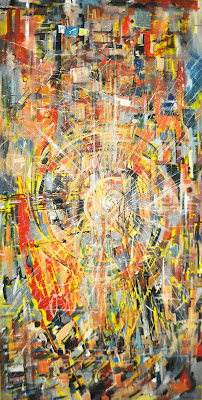Computers!
Remember before we had computers? The world worked, well, maybe as well as it does now. We (or, let’s face it, our parents), were well informed about politics, if they had such proclivities. They were able to work, communicate with friends and family, and do all of the basic functions that we now rely on computers for.
I know this is true. But it still came as a bit of a shock to me when, sitting on Maria’s farm in Busia, a long very in-depth conversation with Stephen Odhiambo (who works on Maria’s farm) about American politics turned into a discussion about how Stephen had never used a computer. How was it possible for him to be talking to be about the field of Republican candidates, politics in a country very far away, without ever having touched computer? I’m not even going to try and answer that. I probably should have asked him, but didn’t.
Instead, I said, “Sit right there” and leapt up to get my computer. I plugged in my Safaricom USB stick that connects us to internet, and right there, sitting under the banana trees, Stephen interacted with a computer for the first time. I showed him word. I taught him how to make spaces between words, capitalize a letter and delete things when you make a mistake. We moved on to the internet. I asked him what he wanted to know—any issue. He wanted to know how vitamins work.
I googled it. Looking at the predictive search terms that came up, I said, “Do you want to know what vitamins do for the body, or how they work?”
Stephen sounded annoyed. “I know what they do for the body,” he answered, “I want to know how they work.” A minute later we were pouring over chemical equations.
We found the farm that we were sitting on using Google satellite. At the end of about an hour, we were chatting with my friend Yulia in New York, using video Skype. Welcome to the digital age, Stephen.
Ok, so this is a tale of two worlds, where one of us cannot imagine 
This is a tale of access. Stephen doesn’t own a computer, none of his friends own a computer. This is also a tale of knowledge. Stephen could go to a cyber café, but what would he do there? He doesn’t know how to use a computer, and simply playing around is expensive. This is a dramatic inequality in access and knowledge about technology.
In this context, what does a library do? It is clear that Stephen is not unique in Busia. Even Maria—who has opened a cyber café to support the library—doesn’t use email. The computer classes we’ve done at the library have exposed people to a new world . I gave an impromptu computer class to Maria and Emily Pamba, another key figure on the library management team in Busia, at Maria’s cyber café, and the whole place joined in to learn more. They saw my parents' house in Maine and mine in Brooklyn (Google street view this time). In response to questions, I went through the differences between Facebook and Twitter, in addition to why and how to use both.
Point being, even in super techno-hip Kenya, the need is there, and it’s not an abstract need. When you talk to people who are on the other side of that access and knowledge gap, there is a hunger to have the opportunity to learn.



















